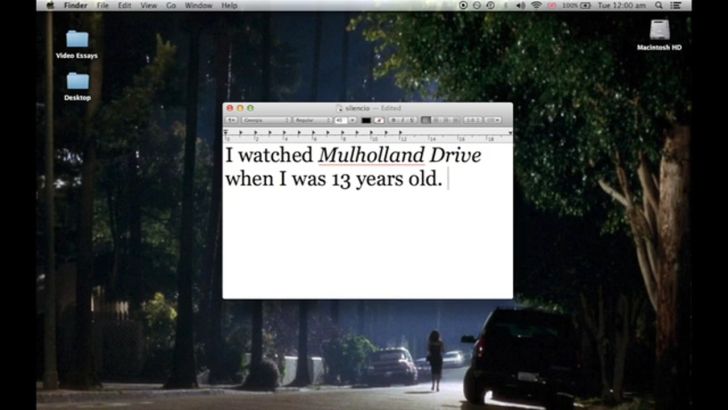Two years of Read Max
Looking back on the second year of this newsletter
Greetings from Read Max HQ in Brooklyn, N.Y.! Next week (October 18) marks the second anniversary of this newsletter’s founding email. It has been a strange, surprising, and, I am astonished to report, successful two years: Read Max is officially, from a money perspective, a sustainable business/career proposition, despite its owner-publisher’s near-constant attempts at sabotage.
I’ll get to the numbers shortly, and look back on some of the highlights and lowlights of the year. But first, in the spirit of grasping neediness, unwelcome sentimentality, tiresome narcissism, abrupt transitions, and other hallmarks of the “Read Max style,” allow me to explain why I am doing this newsletter and what I like about it.
Around this time last year, I was approached by people working for a magazine I love about co-hosting a podcast for them on a contract basis. I recorded a sample episode, had a few good interviews with people at the magazine and the audio arm of its parent company, and was eventually offered the job. This was great news: At that point in 2022 the newsletter was making less than subsistence money from subscriptions, and the podcast gig could potentially help stabilize my income a bit.
But a week later I found myself on a Zoom call with one of the people with whom I’d interviewed, an audio executive at the parent company, who told me--apologizing profusely--that he had to rescind the job offer. He explained that they’d run the podcast up the flagpole, and that the people in charge were familiar with my work at Gawker, and had decided to block me from being hired. It wasn’t quite clear if this was a vendetta against me in particular, or against Gawker in general, or if perhaps it was just an obscure fear of bad publicity or bad behavior--but it didn’t matter. This was coming from the top.
The people I’d been speaking with were outraged and apologetic, not to mention a bit shocked by the company’s unprofessionalism, but it was hard for me to gin up too much disappointment, or surprise. I was pretty familiar with this process. A few years before, a friend and I had sold a TV show to a big tech company dabbling in film production. We hired a writers room and wrote an entire first season over the course of a summer--only to be told, in the final weeks of the room, that the C.E.O. of the tech company had discovered the production executives to whom he was barely paying attention were working on a show involving Gawker writers, and unceremoniously, in an email of a line or two, killed the entire show.
And, of course, we all know what happened to Gawker.
In other words, it has become unfortunately common for me to have promising opportunities or interesting projects quietly and suddenly shut down by rich men I’ve never met. I bring this up not to gin up sympathy (though, if sympathy will get you to buy a subscription, allow me to gin up sympathy) or suggest that I’m lamentably unemployable due to my sordid past as a “blogger.” (Many wonderful people and institutions have exchanged money for my services since I left Gawker eight years ago.) I bring it up, actually, because, thanks to this newsletter, it really doesn’t matter. The fact that I can make a decent living through writing to an audience of people who want to pay is incredibly empowering--emotionally/spiritually, yes, but also materially, because it means that I don’t need money from the apparently numerous executives willing to casually overrule their middle managers to specifically screw me over some imagined past transgression.
I recognize that this is a sort of funny creative-class version of the classic petit-bourgeois fantasy of escape from the logic of the market, but I don’t care, because it’s a nice fantasy and I enjoy living it. There are plenty of downsides--no vacations, no sick days, no free coffee in the break room--but like a lot of writers I have felt increasingly dissatisfied with life lived at the whims of the bosses of editors and producers, and this newsletter allows me at least the illusion of escape.
And that’s all down to you guys--or, specifically, the 1,875 of you that pay to enable this experiment in fully destroying my career. I’ve been in positions where millions of people were reading my writing every month (caveat about internet metrics: “millions” of “people” were “reading”), and it’s never been as exciting or creatively satisfying as writing to a much smaller number of much more engaged readers, readers who “get it” and want to enable the production of a publication that also “gets it.” I love nearly every email and comment I get; I can’t express how grateful and happy I am to have the audience I do. But more than the psychic gratification I feel, the material benefit that redounds to me is meaningful: your subscriptions allow me to follow my interests, my questions, my passions, instead of figuring out how to follow someone else’s. So, thank you.
Read Max by the numbers
This is what I see when I clock into the Substack factory:
Some notes about these figures:
Over the past year, I’ve written 125 posts (including this one), comprising somewhere between 150,000 and 200,000 words, which means that yearly subscribers are paying an even 40 cents a post, a bargain if I’ve ever heard one. (Take advantage of this bargain here!)
Year over year, Read Max has doubled in size almost exactly, from around 13,000 free and 925 paid subscribers in October 2022 to 26,000 free and 1,875 paid subscribers in October 2023. it would be nice to double again from here, but I suspect that my growth is linear at best, and if I stick to the same posting schedule, and barring unforeseen events, another 13,000 free and 900 paid subscribers over the next year would be a best-case scenario.
Even if growth is roughly linear in the medium-to-long term, it’s hard to predict in the short term--as the chart suggests, there are periods of growth followed by long plateaus, and it can be hard to attribute specific reasons to growth or stagnation as they come.
Some of the most rapid growth over the past year came in December and January, a fact I attribute to the simultaneous collapses of FTX and Twitter, two big news stories right in this newsletter’s wheelhouse. Not only did the flow of news mean that sometimes I was writing three times a week--as I’ve written before, output volume is the foundation of success online--but the fact of Twitter’s collapse seemed to send a number of people fleeing to Substack.
My subscriber conversion rate, growth rate, and retention rate are all around normal for a Substack of this size.
I don’t really know how Substack calculates “Gross annualized revenue,” but it’s a forward-looking number, so it reflects how much Substack thinks I can expect to make over the next 12 months, not how much I made this past year, which was significantly less. Substack and Stripe’s cuts, which amount to around 13 percent, are not included in the figure.
It’s pretty good money, and this year I’ve been able to augment it with good freelance writing and consulting work to help cover moving expenses and other sundry costs. The hope is that as the Substack itself grows, I will rely less on freelance income, allowing me to put more time and attention into the Substack, which will make it better and a more attractive value proposition, creating a virtuous cycle, etc.
There are five U.S. states where I have never had a paying subscriber: South Dakota, Mississippi, South Carolina, West Virginia, and Delaware. My goal for next year is to have earned at least one paying subscriber in each of those states. (There are three states where I have only ever had one paying subscriber: Montana, North Dakota, Nebraska.)


Globally most of my audience is Anglophone, with the exception of Germany, which has a strong publishing industry and is filled with media perverts who like to read and learn about the media business. Shout-out to my multi-lingual German kings and queens!
Here are publications with which Read Max has a lot of overlap, all of which I recommend:
This list is unsurprising because all of these publications (I think) “recommend” Read Max on the Substack platform, which is a significant driver of subscriptions and a major reason to stay.
Year in review
It’s hard to know how exactly to rank the top free posts of Read Max Year Two--absolute views? Free subscriptions driven? Paid subscriptions driven?--but here is a sort of holistic top 12, all of which scored well across those three categories:
This is a pleasing top-ten list, because I think it does a good job of representing the full breadth of what Read Max is about. The way I see it, Read Max, like any self-respecting discursive institution, has five pillars:
Tech News and Hype (represented here by Twitter and A.I.)
Weird Guys Online (represented here by Henry de Tolla, Dan Nosowitz, and Sam Biddle)
Some Things I Noticed (represented here by smoking discourse and fake Apple texts)
Media Criticism (represented here by Yglesias, the NYT, and Buzzfeed)
Action and Sci-fi Books and Movies (not represented here but the mainstay of the paid newsletters)
Of these, “media criticism” is the one about which I feel the most ambivalent--writing about Times columnists or whatever always feels a bit like participating in a fandom, i.e. socially embarrassing, needlessly intense, and ultimately a bit pointless. But like a fandom the audience for that kind of thing is incredibly passionate, so I suppose I will keep it up.
These are the paywalled (“roundup”) posts that drove the most new paying subscriptions:

What to buy in the NYRB summer book sale, a tropical paranoid thriller, and a terrific new RnB album
Overall there’s not a ton of rhyme or reason to which recommendation-roundup posts convert readers, beyond the observation that people like “what to read about news_subject” explainer roundups, so I should probably do more of those.
Looking forward to next year
What’s in store for Read Max over the next year? Well, at the very least, more of the same. I feel optimistic about our chances for growth next year, but there are Material risks include:
The end of ZIRP killing off all big tech-hype products so there isn’t enough to write about. Newsletter writers like me were lucky to get A.I. riding in right as crypto died; now, A.I. hype is already waning. (At least, I get a lot fewer readers for A.I. newsletters than I used to.) What comes next, hype-wise, and how can I get a piece?
Healthcare insurance. My family’s in a annoying healthcare insurance situation that is both very specific to our lives but would also familiar to Americans as a general feature of life, the upshot of which is that if certain things don’t fall our way there’s a small risk that sometime in the next year I will need to go get a “real” job solely to get healthcare insurance.
The Dune movie is bad. A big tentpole product for Read Max is “explaining the new Dune movie.” If it’s bad, we’re in trouble.
Should we expand? Some possible new products being kicked around by the high-level strategies team at Read Max include:
More posts from outside writers: Two of my most successful (and, frankly, best) posts last year were by friends writing funny personal essays about their particular kinds of brain damage. It seems like there is a lot of upside to letting good writers cook, and I want to do it more this coming year.
A podcast. This seems like the obvious next step but it’s not clear what it would entail really, and doing a good podcast is a lot of (extra) work.
A third weekly subscriber-only newsletter. Possibly some kind of quick weekly news bulletin to touch on stuff not covered in the other two newsletters? Would it cannibalize the weekly column? Prove too much work?
A Discord. Yeah, IDK, this feels like a low-effort value-add but I hate the parasocial aspect of this job and think I prefer just having an active comment section and email inbox to moderating a chatroom based entirely on my personal newsletter? But never say never, I guess.
On these items or any not listed, reader feedback is always welcome. Thank you, again, for subscribing; I’ll see you here this time next year.























we love max
Hi Max, long time, first time. A big part of the success I think could be attributed to the “old internet” feel of Substack. A friend recently pointed out how Discord has absorbed so many message boards, put them behind a paywall, and saddled them with a horrible search function.
I feel like this dovetails with the prevailing sentiment among my geriatric millennial peers “the internet just isn’t fun anymore”